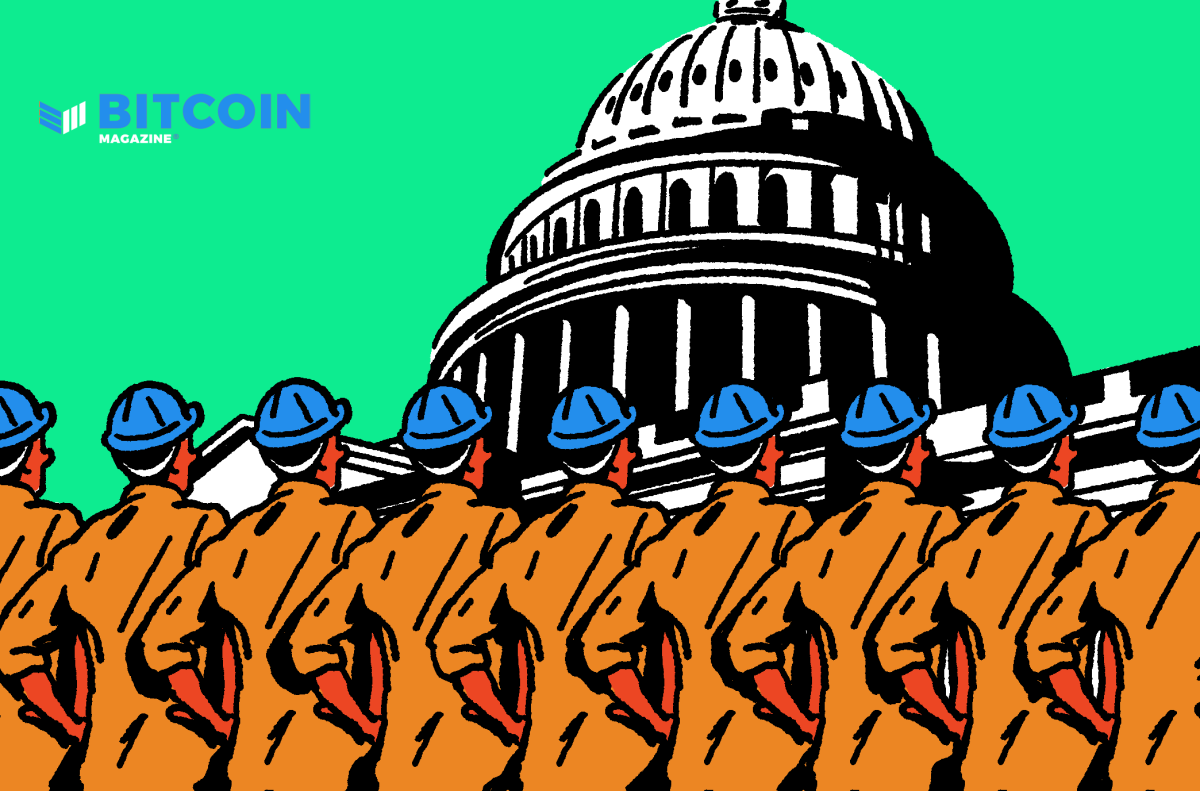This is an opinion editorial by Niklas Kleinworth, a research assistant at the Idaho Freedom Foundation, which is a public policy think tank.
As Congress seeks to refine the federal government’s stance on cryptocurrency, one must be wary of policies that permit favoritism of the interests of bureaucrats over Bitcoiners. Though Bitcoin itself cannot be regulated, federal control could stunt progress in orange-pilling nocoiners by making bitcoin less practical to access and exchange. Bitcoiners should support legislation that both simplifies the industry’s relationship with the U.S. government and offers protections against bureaucratic overreach.
Senators Cynthia Lummis and Kirsten Gillibrand’s cryptocurrency legislation is a highly anticipated and celebrated milestone in the industry as it recognizes the role that bitcoin plays in the U.S. economy and offers a regulatory framework for many of the gray areas that have plagued government interactions with the business of bitcoin. Among these, the bill would designate the Commodities Futures Trading Commission (CFTC) as the regulatory body for cryptocurrency matters, define bitcoin as a commodity rather than a security, and improve market transparency for stablecoins. This approach could lead to more innovation and greater adoption of bitcoin as it is applied to everyday transactions.
Despite the merits of the bill, Bitcoiners should be skeptical about this new policy direction in Washington, D.C., as a regulatory framework is no more restrictive on bureaucratic agencies than the edges of a blank canvas for a painter. The Lummis-Gillibrand bill touts the creation of this framework but fails to implement any protections against the very entity that is threatened by the Bitcoin ethos of decentralizing wealth and rendering fiat obsolete: the federal government. By imposing a regulatory framework without implementing guards against bureaucratic overreach, the industry will be no safer after this bill is passed than it is today. In fact, one can argue the industry will be less safe because bureaucrats will be allowed to focus their regulatory efforts on the industry instead of fighting each other for control.
Though Senator Lummis has discussed passing cryptocurrency legislation for some time now, the recent push for its passage appears to be driven by investors fleeing to the government for rescue after the liquidation crisis of the last few months. Proponents of more regulation are not the everyday HODLers who believe in the principle of decentralized wealth and financial freedom. Rather, they are the modern-day gold prospectors attempting to leverage the get-rich-quick ploys of altcoins to expand their wealth in fiat. Yet, their cries for regulation are presented as consensus from the cryptocurrency industry, incidentally sweeping Bitcoiners into the new regulatory scene despite their noninvolvement in the crisis.
In Bitcoin’s truly trustless system of financial accountability, there is no need for regulation. Because of this, there really is no need to regulate the remainder of the cryptocurrency market either. Consumers hate nothing more than being scammed. As altcoin fads come and go, it becomes apparent that bitcoin has staying power and investors will eventually stop supporting failing, unstable and pseudo-decentralized coins. If there is anything that we have learned over the past two months, it is that Bitcoin is the model for laissez-faire capitalism operating in a self-regulated system.
It is very dangerous to seek the government as the ultimate solution to problems that exist in a free market. Especially when issues were caused by a product’s poor durability responding to bad market management by those same regulators.
The issue with additional regulation of cryptocurrency exchanges is that the government would acquire more tailored control of the market and limit financial freedom. This effect is especially potent as bitcoin integrates with the market by becoming a payment option for the average consumer. Businesses, not bitcoin, will become the target as few of them would be willing to risk the consequences for defying government overreach.
Bitcoin is designed to be the escape hatch from the federal government’s poor management of the market. At present, historic inflation is making ordinary activities like driving to work and eating three square meals a day practically cost-prohibitive. Meanwhile, the Federal Reserve is dangerously close to overcorrecting the situation, threatening to send the economy into a recession that could rival what we experienced in 2008. Given this track record, it would be unwise to grant the present stewards of the American economy any control of people’s access to their only means of escape.
Though the Lummis-Gillibrand bill is a start to clarifying the law and recognizing bitcoin as a viable store of value, there needs to be provisions that protect the industry from the regulators themselves. There should be protections that recognize your right to own and keep your bitcoin, limit the latitude executive agencies have when interpreting their role within the regulatory framework, and recognize one’s right to financial privacy as guaranteed by the fourth amendment of the U.S. Constitution. Regulating the regulators would limit overreach and support the rights to financial privacy and property in their most perfect form.
One should remember that bitcoin is not intended to be an ordinary investment, but a movement built on the principle that financial freedom should be accessible to all and absent market manipulation by any government, company, group or individual. Investors voluntarily calling for the restriction of this right are holding bitcoin for the wrong reasons and entirely miss the point of this grand experiment.
Bitcoiners must not only HODL their bitcoin on the basis of their belief that it is a superior store of value. They must also apply this principle to the sphere of public policy: “Politically HODLing” on the basis that bitcoin requires no regulation as the superior trustless system it is. It is important to both support public policies that clarify the law, encourage innovation and open the market, while opposing those that create inroads for bureaucrats to regulate at will. Without this political vigilance, Bitcoiners are in danger of losing the culture war between the Fed and true financial liberty.
This is a guest post by Niklas Kleinworth. Opinions expressed are entirely their own and do not necessarily reflect those of BTC Inc. or Bitcoin Magazine.
Source: https://bitcoinmagazine.com/legal/how-will-bitcoiners-regulate-the-regulators



